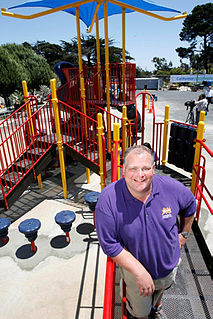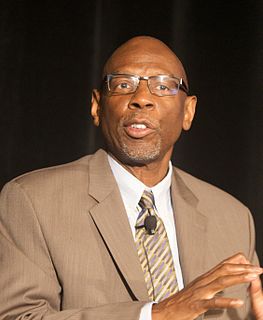A Quote by Rafe Esquith
Most children, even very bright ones, need constant review and practice to truly own a concept in grammar, math or science. In schools today, on paper it may appear that kids are learning skills, but in reality they are only renting them, soon to forget what they've learned over the weekend or summer vacation.
Related Quotes
It only takes about 50 contact hours to transmit basic literacy and math skills well enough that kids can be self-teachers from then on. The cry for 'basic skills' practice is a smokescreen behind which schools pre-empt the time of children for twelve years and teach them the six lessons I've just taught you.
Without question, students need to practice, review, and drill skills, but they should do so only in the spirit of working toward more complex mastery of those skills. Redundant drill of skills is inherently boring and insulting to the learner, and it is one of the most effective methods for turning students off to learning.
Kids not only need to read a lot but they need lots of books they can read right at their fingertips.They also need access to books that entice them, attract them to reading. Schools...can make it easy and unrisky for children to take books home for the evening or weekend by worrying less about losing books to children and more about losing children to illiteracy.
Everybody wants to have sex - you don't have to have a baby when you're 16. You don't have to do drugs. I think our Sunday schools should be turned into Black history schools and computer schools on the weekend, just like Hebrew schools for Jewish people, or my Asian friends who send their kids to schools on the weekend to learn Chinese or Korean.
Even though kids may have planned for months for the trip to Disneyland, some may be feeling very homesick, very forlorn, or very marginalized by the group. Your capacity to perceive those kinds of situations and respond to them in a pastoral way is the stuff you are teaching. And even though the kids may appear to be ignoring you, they are very aware of what you are doing and how you are doing it. They are also very aware of what you are missing and not picking up on.
One of the things, and the most exciting, actually definitely the most exciting thing is, having children. You know, I didn't have children before. I had been married only a year before my space station mission, so having three-year-olds is a whole new experience and that's the new adventure. It may sound funny because people have kids every day, but having your own kids, having my own kids, was as fundamentally, or maybe even more fundamentally life changing then even flying in space.





































